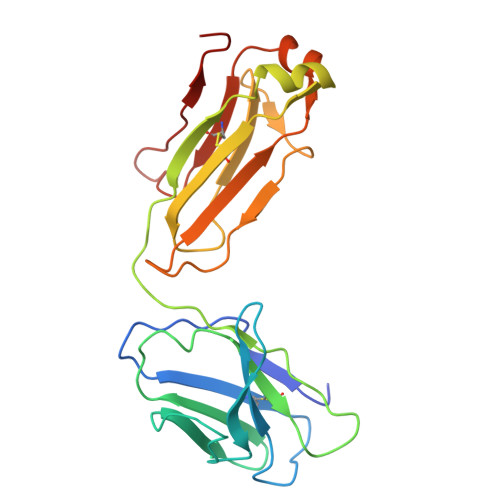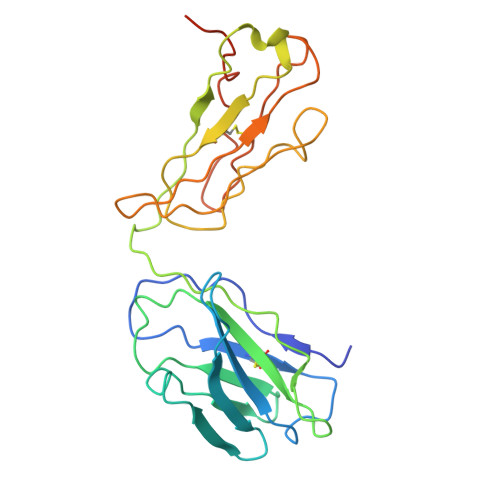Monoclonal antibodies targeting the FimH adhesin protect against uropathogenic E. coli UTI.
Lopatto, E.D.B., Santiago-Borges, J.M., Sanick, D.A., Malladi, S.K., Azimzadeh, P.N., Timm, M.W., Fox, I.F., Schmitz, A.J., Turner, J.S., Sayed Ahmed, S.M., Ortinau, L., Gualberto, N.C., Pinkner, J.S., Dodson, K.W., Ellebedy, A.H., Kau, A.L., Hultgren, S.J.(2025) Sci Adv 11: eadw0698-eadw0698
- PubMed: 40540557
- DOI: https://doi.org/10.1126/sciadv.adw0698
- Primary Citation of Related Structures:
9CCS, 9CCT, 9CCU, 9CCW - PubMed Abstract:
As antimicrobial resistance increases, urinary tract infections (UTIs) are expected to pose an increased burden in morbidity and expense on the health care system, increasing the need for alternative antibiotic-sparing treatments. Most UTIs are caused by uropathogenic Escherichia coli (UPEC), whereas Klebsiella pneumoniae causes a large portion of non-UPEC UTIs. Both bacteria express type 1 pili tipped with the mannose-binding FimH adhesin critical for UTI pathogenesis. We generated and biochemically characterized 33 murine monoclonal antibodies (mAbs) to FimH. Three mAbs protected mice from E. coli UTI. Mechanistically, we show that this protection is Fc independent and mediated by the ability of these mAbs to sterically block FimH function by recognizing a high-affinity FimH conformation. Our data reveal that FimH mAbs hold promise as an antibiotic-sparing treatment strategy.
Organizational Affiliation:
Department of Molecular Microbiology, Washington University in St. Louis, St. Louis, MO, USA.


















